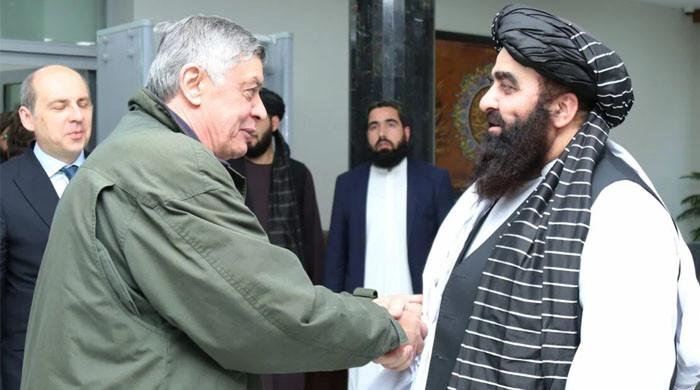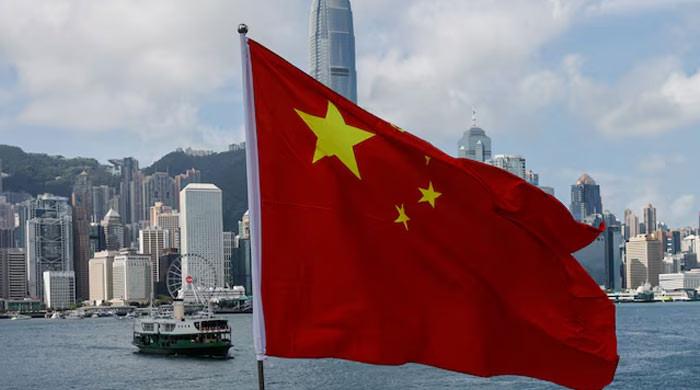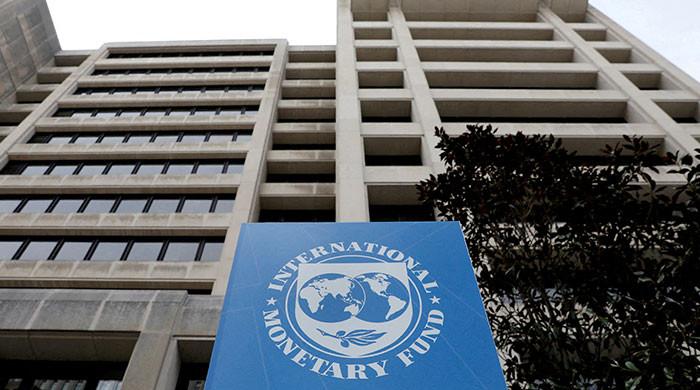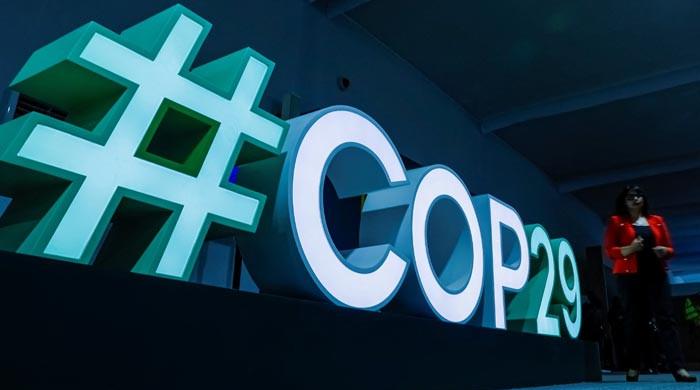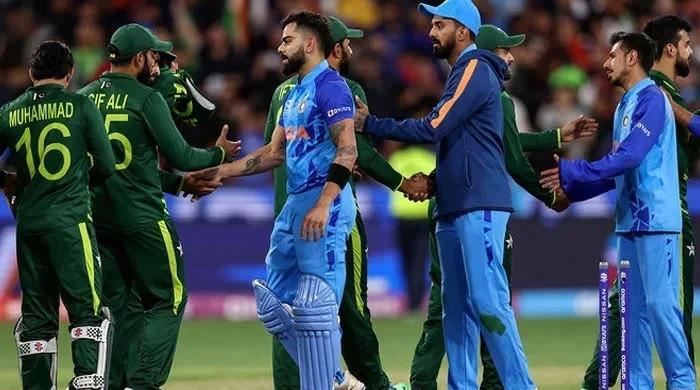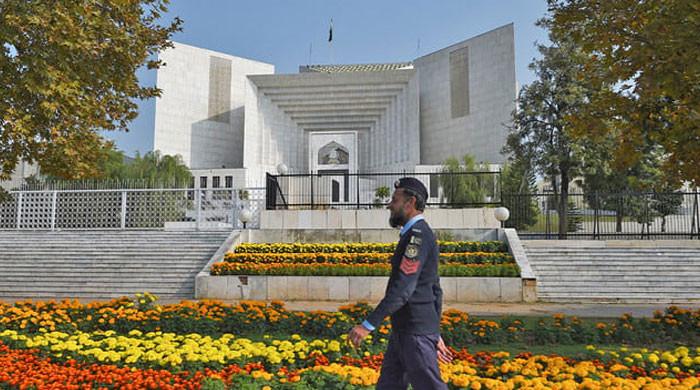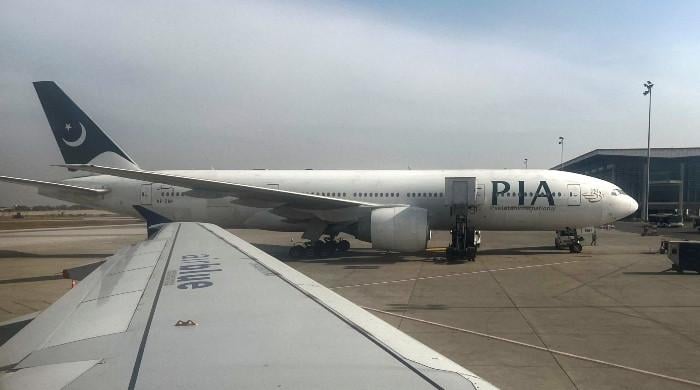In and out of prison: What is next for Asif Ali Zardari?
The party Zardari has passed on to his son is in complete disarray
June 15, 2019
I remember meeting former president Asif Ali Zardari in 2004, just before his re-arrest. "When I was released from the prison after eight years,” he told me back then, “I left my belongings at the cell because I knew that the government would want me back there sooner or later.”
Flash forward 15 years later.
A few months ago, I visited the central prison in Karachi. The then-jailer disclosed that whenever prisoners like Zardari are brought in, facilities such as water coolers, fans, and at times even air conditioners, are installed for them. "We always look forward to and welcome such people in prison," the jailer said with a smirk.
This week, Zardari was detained by the National Accountability Bureau (NAB) in connection to a fake bank accounts and money laundering case.
His lawyer, Farooq Hamid Naek, is confident that he would be released on a bail soon. While, the NAB prosecutor, on the other hand, was equally sure that he would be convicted by the accountability courts on charges of corruption. The prosecutor is certain that there is solid evidence, and more information against the former president will arrive in the coming days.
For most of Zardari’s political life, he has been referred to as “Mr. 10 per cent”. And yet, despite the allegation of corruption trailing him, he was appointed to the highest position in the country – president - in 2008. His association with the Pakistan Peoples Party (PPP), one of the major political parties in Pakistan, started after his wedding to the former Prime Minister Benazir Bhutto. Thereon, Zardari was accused of involvement in multiple cases, ranging from graft to criminal cases.
I first interviewed him in 2004, before he was arrested in connection to the murder of the Sindh High Court Judge, Justice Nizamuddin Ahmad. He was later acquitted. That was not his first stint behind bars though. Earlier, he had been arrested as a suspect after the murder of Mir Murtaza Bhutto, his brother-in-law.
However, Zardari's name came up, related to corruption, a year later, after the PPP government was formed in 1988. A story was leaked regarding a kidnapping for ransom in which his alleged involvement was reported. Months later the then-President Ghulam Ishaq Khan dismissed the PPP government on charges of corruption, including the above-mentioned case.
This month, Zardari, who has been dodging a pre-trial arrested by the NAB, through court bails, was cuffed and taken to the NAB’s Islamabad office. A day later, a visibly upset Prime Minister Imran Khan, in a televised address to the nation, stated that he would not let them - Zardari and Nawaz Sharif - go unpunished. This was a clear message and warning. Zardari's son, Bilawal Bhutto Zardari, termed the premier’s speech a sign of nervousness.
While the trajectory may be the same, arrest and re-arrest on similar charges, the only difference from the past was that this time when he was detained his spouse, Benazir Bhutto, wasn’t there. The former prime minister would often say that the authorities would arrest her husband to put pressure on her. She was not wrong. Twice her government was sent packing on charges of corruption, and each time after Zardari was picked up.
This time is different, we are told. Prime Minister Khan and his team are sure that this time Zardari would be punished and disqualified from contesting elections in the future.
Asif Ali Zardari belonged to a family which had a mixed record of pro- and anti-PPP sentiments. His late father, Hakim Ali Zardari, was against Zulfiqar Ali Bhutto when he was in the National Awami Party. He once told me, at his Clifton residence, that his son had suffered in prison after marrying Benazir, simply because she was not acceptable to the establishment. But, it is also a fact that the elder Zardari's spouse, Timmy Bukhari, has arranged her son's wedding, due to her close friendship with Begum Nusrat Bhutto, Benazir’s mother.
Days before his latest arrest, I met a school friend of Zardari, who once gave me a complete account of his life and politics. The two were together in college in Jamshoro, Sindh. Some of his other class fellows were, Dr Asim Hussain, Javed Pasha, Dr Zulfiqar Mirza and Abbas Rizvi. The friend, who did not want his name to be disclosed, said that once Zardari's father donated a film projector to the college and Zardari himself brought it to school. “He was a good polo player as well, back then," he added. From a polo player, he soon became a political player. “Unlike his father he was not very inclined towards left-wing parties and did not agree with his father’s dislike of Z.A. Bhutto.”
After his marriage, Zardari’s politics mostly remained under the shadow of Benazir Bhutto. It was in 1989, when for the first time he played an active role in getting the vote-of-no-confidence against his wife defeated. However, in his 32 years’ political association with the PPP, he personally could not muster much political support and often was left disappointed.
Once he expected a big reception on his arrival in Lahore, while Benazir was in exile but, the numbers he expected did not turn up. In 2004, Benazir asked him to re-organise the PPP in Punjab, and he did convince some of the old PPP guards to return to the PPP.
Zardari's new and recent political innings began with a controversy over Benazir's will, which he disclosed before the party’s central committee, two days after the assassination of Benazir Bhutto on December 27, 2007.
A year later, the PPP formed the government after the general election. For the first time, the PPP got all the highest positions i.e. president, prime minister, chairman senate and speaker national assembly. Zardari then created history when he handed over all the powers of the president, which were conferred during the days of General Zia ul Haq and Ghulam Ishaq Khan, back to parliament. At the same time, he faced criticism for allowing General Pervez Musharraf, the former president, a safe exit out of Pakistan. He also developed differences with the former prime minister Nawaz Sharif over the restoration of a deposed judged but succumbed to pressure after Sharif's long march call in 2009.
Zardari’s has a chequered political history, marked with more controversies and corruption allegations than achievements. Many believe he failed in keeping the support base of the PPP intact, particularly in Punjab and Khyber Pakhtunkhwa.
So, the party, Zardari has passed on to his son is in complete disarray. It will be an uphill task for young Bilawal to give new life to the party outside Sindh. Some party leaders believe that had Asif Zardari listened to them during a marathon meeting in Dubai in 2015 to quit, things could have been different for Bilawal today.
In the 2004 interview when I asked him, where he will go from here, he said: “Either to Islamabad (PM House) or to jail."
While the journey to Prime Minister House looks impossible in the present circumstances, the former president could be spending his time these days thinking of ways to get out of the NAB custody or possibly prison, which could be either the Adiala jail in Rawalpindi or the central prison in Karachi.
Abbas is a senior columnist and analyst of GEO, The News and Jang
Twitter: @MazharAbbasGEO
Note: The views expressed are those of the author, and do not necessarily reflect the official policy or position of Geo News or the Jang Group.




